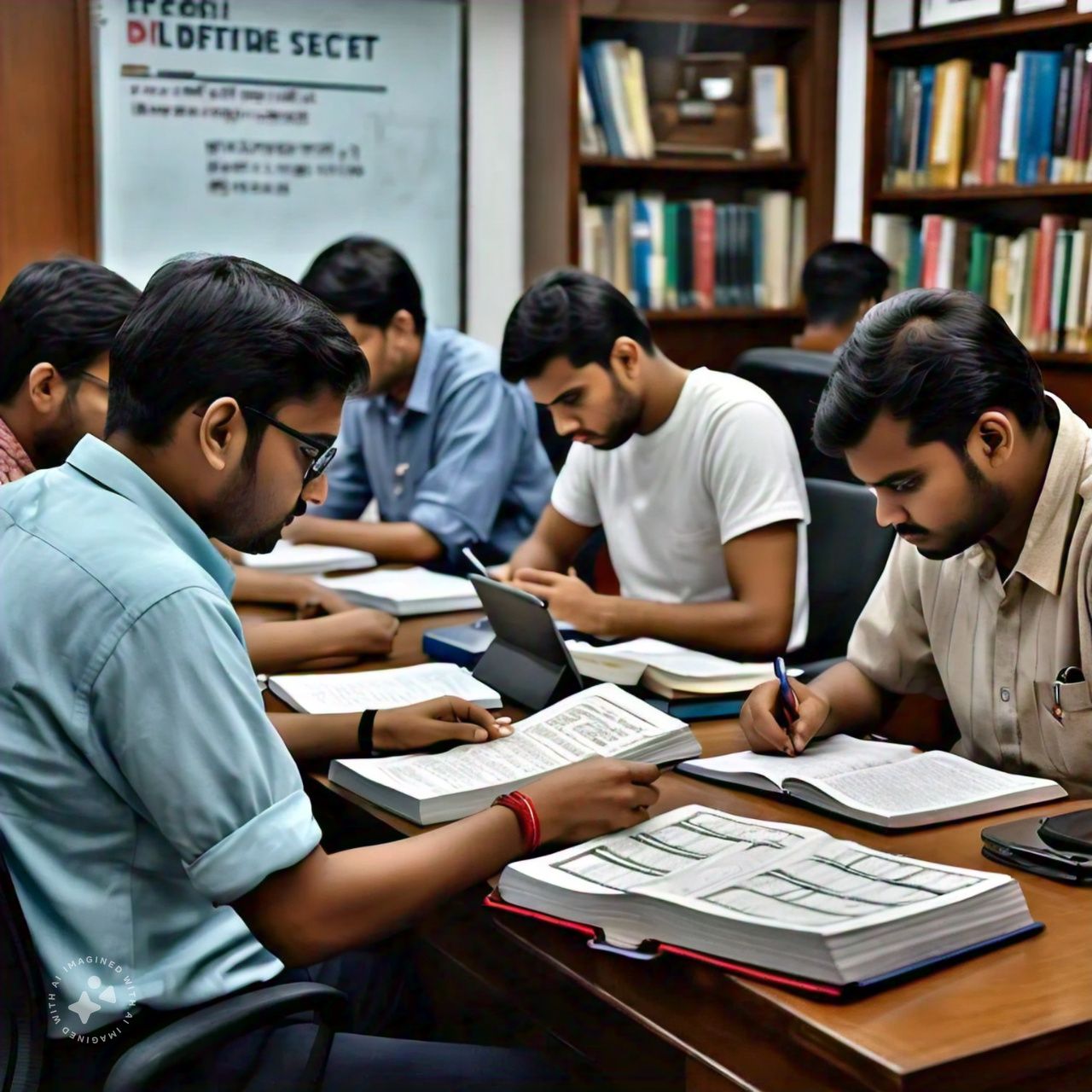The Air Force Common Admission Test (AFCAT) is conducted by the Indian Air Force to select candidates for various roles in Flying, Technical, and Ground Duty branches. The exam includes AFCAT and the Engineering Knowledge Test (EKT) for technical candidates. This blog provides a detailed AFCAT syllabus for, including important topics for both the AFCAT exam and EKT.
AFCAT Exam Pattern
AFCAT (Non-Technical)
- Total Marks: 300
- Total Questions: 100
- Duration: 2 hours
- Subjects: General Awareness, Verbal Ability (English), Numerical Ability, Reasoning, and Military Aptitude
EKT (Technical) (For Technical Branch Only)
- Total Marks: 150
- Total Questions: 50
- Duration: 45 minutes
- Subjects: Engineering Mathematics, Engineering Drawing, Mechanics, Electronics, and Computer Science (based on the applied branch)
Note: EKT is only required for candidates applying to the technical branch.
AFCAT Syllabus
1. General Awareness
The General Awareness section covers a wide range of topics, from current events to historical knowledge. Key topics include:
- Current Affairs: National and international events, awards, sports, appointments.
- History: Indian history (ancient, medieval, modern), freedom struggle.
- Geography: Physical geography, climate, and geographical features of India.
- Indian Polity and Economy: Constitution, government policies, economic fundamentals.
- Science and Technology: Recent scientific advancements, space technology, environmental science.
- Environment: Conservation, biodiversity, global warming, pollution.
- Art and Culture: Cultural heritage, famous personalities, Indian music, and dance forms.
2. Verbal Ability in English
This section tests candidates’ proficiency in English, including grammar, vocabulary, and comprehension. Key topics include:
- Comprehension Passages
- Sentence Completion and Filling in Blanks
- Error Detection: Identifying grammatical errors in sentences.
- Synonyms and Antonyms
- Idioms and Phrases
- Vocabulary: Word meanings, usage, synonyms, antonyms.
- Ordering of Words and Sentences: Arranging words or sentences logically to form meaningful sentences or paragraphs.
3. Numerical Ability
This section measures basic arithmetic skills and quantitative aptitude. Topics include:
- Decimal and Fraction
- Simplification
- Average
- Percentage
- Ratio and Proportion
- Simple and Compound Interest
- Profit and Loss
- Time and Distance
- Time and Work
- Number Series: Sequences and series questions.
- Algebra and Simplification
4. Reasoning and Military Aptitude Test
This section evaluates logical reasoning and military aptitude skills. Key areas include:
- Verbal Reasoning: Analogies, coding-decoding, odd one out, sequence.
- Non-Verbal Reasoning: Pattern completion, figure matching, cubes and dice, embedded figures.
- Spatial Ability: Visualization of spatial patterns, orientation.
- Logical Venn Diagrams: Set theory applications to identify relationships between different groups.
Engineering Knowledge Test (EKT) Syllabus
The EKT is conducted for candidates applying for the technical branches (Engineering). It assesses engineering knowledge based on the branch applied for, covering:
1. Engineering Mathematics
- Calculus: Limits, derivatives, and integration.
- Differential Equations
- Matrices and Determinants
- Probability and Statistics
- Complex Numbers
2. Engineering Physics
- Mechanics: Statics, dynamics, and rotational motion.
- Thermodynamics: Laws of thermodynamics, entropy.
- Fluid Mechanics
- Waves and Oscillations
3. Engineering Drawing
- Projection: Orthographic projection, isometric projection.
- Engineering Curves
- Sectional Views and Dimensioning
4. Electrical and Electronics
This section tests electrical and electronics engineering fundamentals:
- Basic Electrical Engineering: Ohm’s law, Kirchhoff’s laws, AC/DC circuits.
- Analog and Digital Electronics: Semiconductors, logic gates, multiplexers, binary and decimal systems.
- Control Systems
- Signals and Systems
5. Computer Science
Candidates from Computer Science backgrounds need to focus on:
- Data Structures: Arrays, linked lists, stacks, queues, trees.
- Database Management Systems (DBMS): SQL, relational database concepts.
- Operating Systems: Processes, memory management, file systems.
- Networking: OSI model, TCP/IP, IP addressing.
Preparation Tips for AFCAT
- Understand the Exam Pattern: Familiarize yourself with the AFCAT and EKT exam patterns and topics.
- Stay Updated on Current Affairs: Regularly read newspapers and current affairs magazines.
- Focus on Basics: Strengthen basics in mathematics and reasoning.
- Improve English Skills: Enhance your vocabulary and practice comprehension regularly.
- Solve Previous Papers: Practice with AFCAT past papers to understand question patterns.
Conclusion
The AFCAT syllabus is diverse and requires a structured study approach to cover all topics effectively. By preparing according to the exam pattern and syllabus, you can excel in both AFCAT and EKT. With focus and practice, you can secure a position in the Indian Air Force and fulfill your dreams of serving the nation.
Start your preparation today and aim for success!
